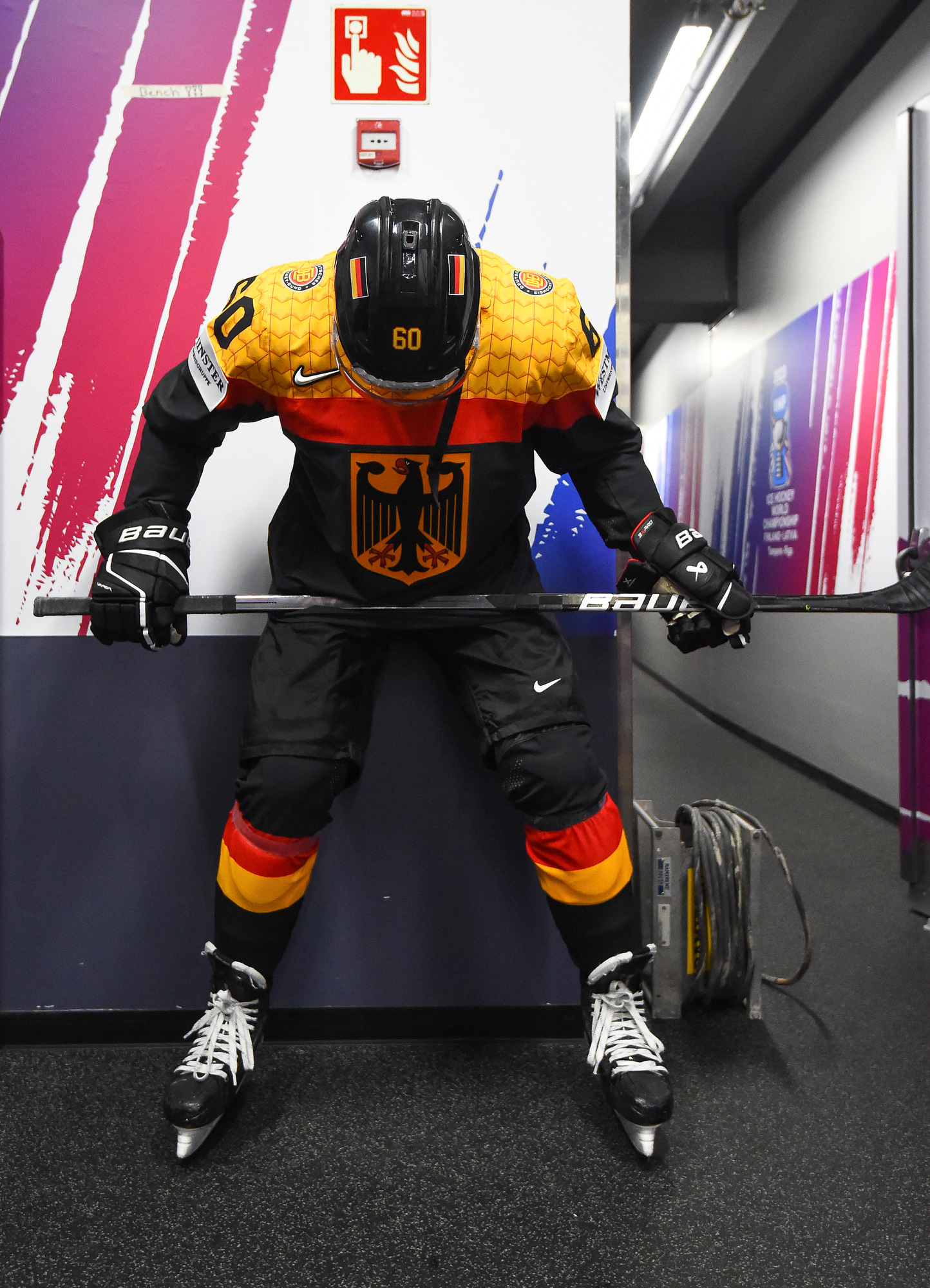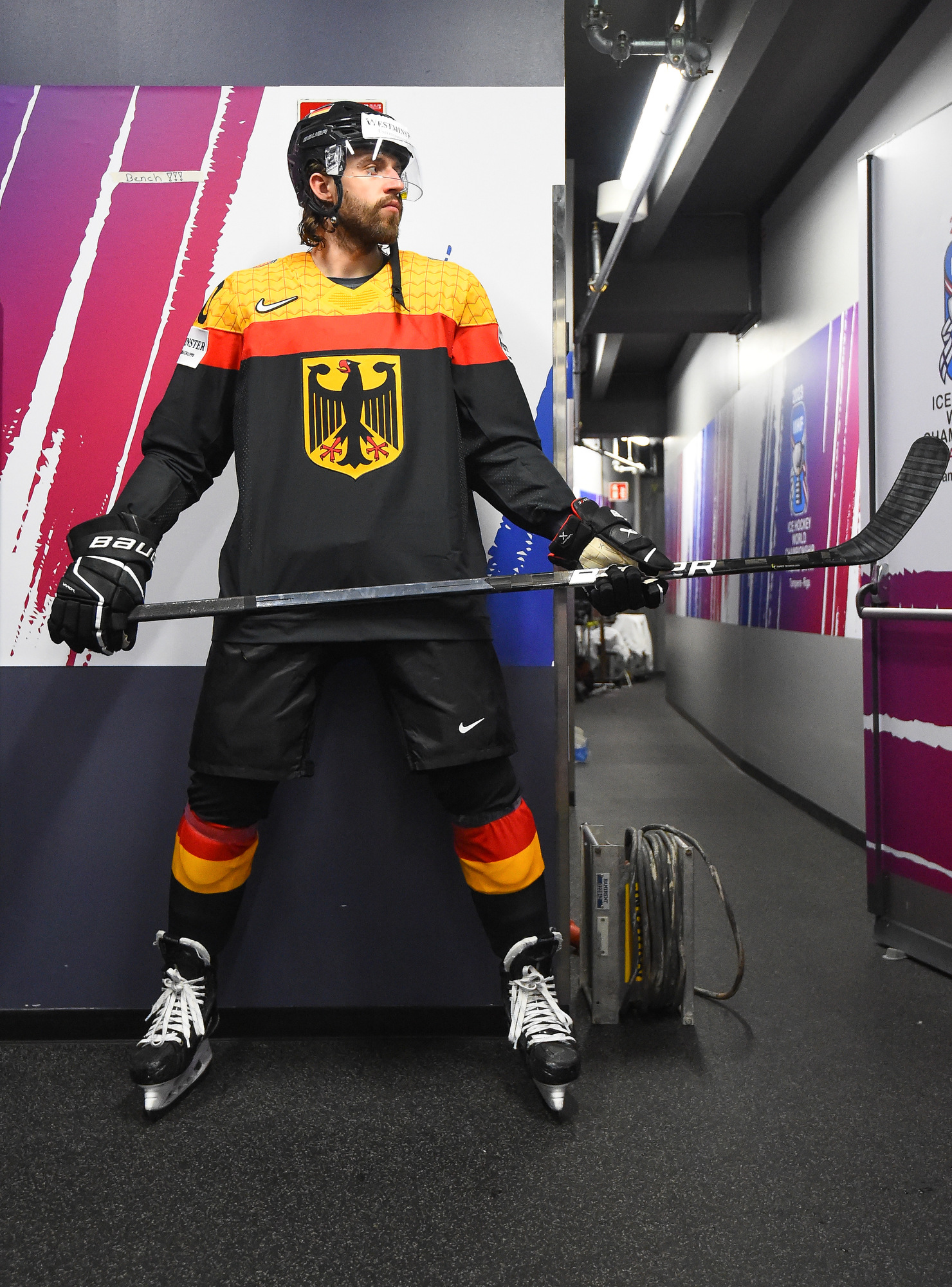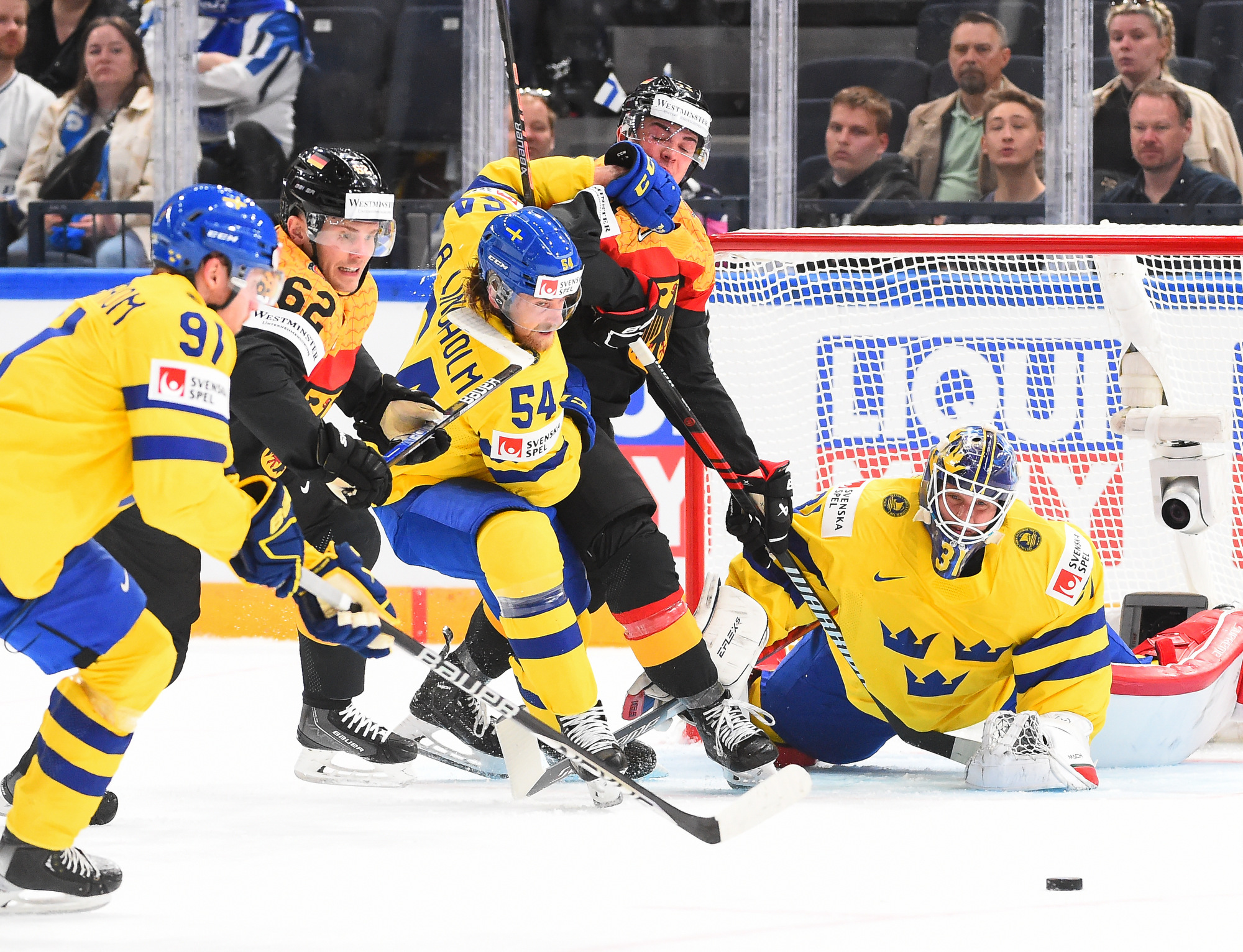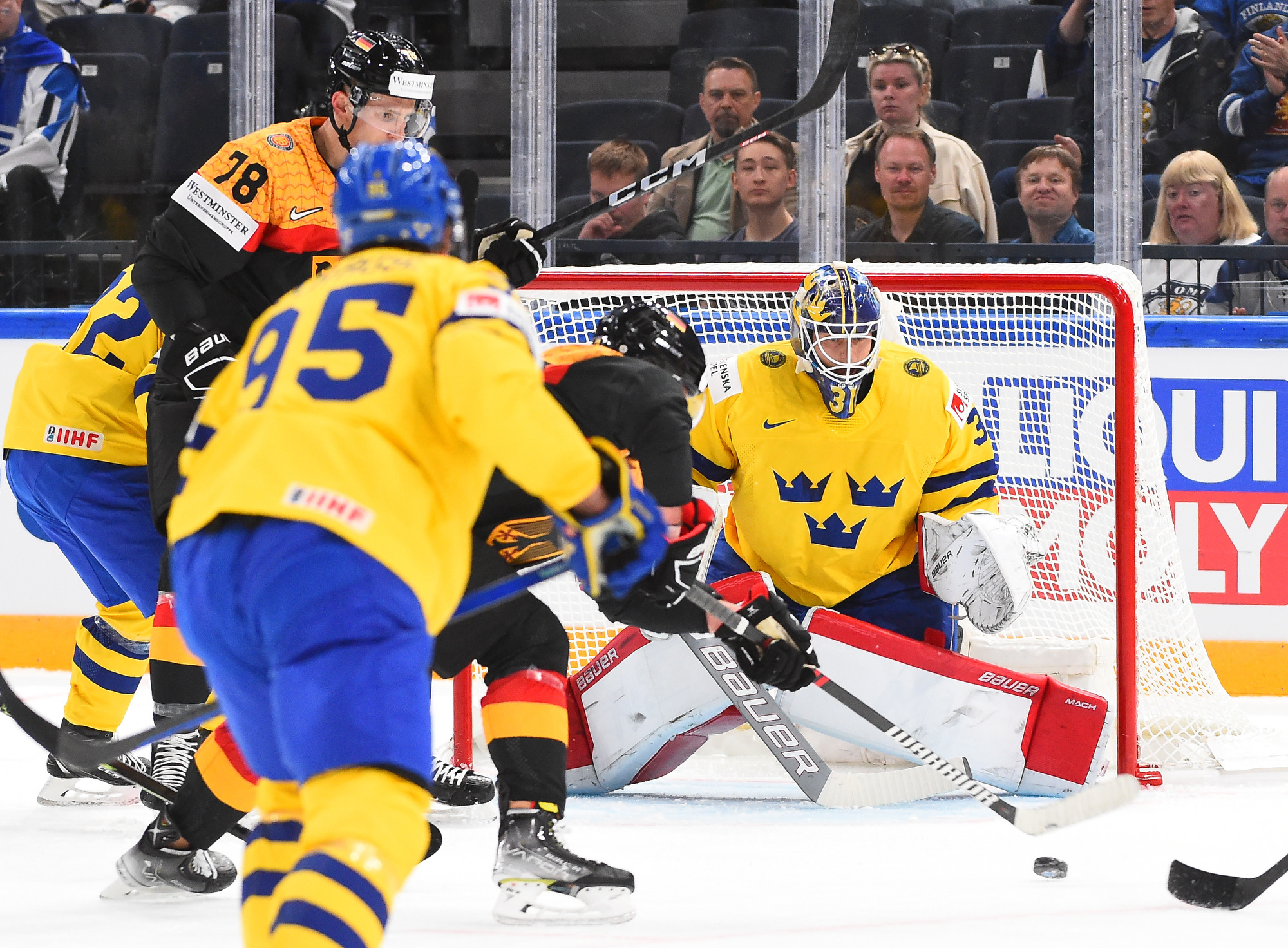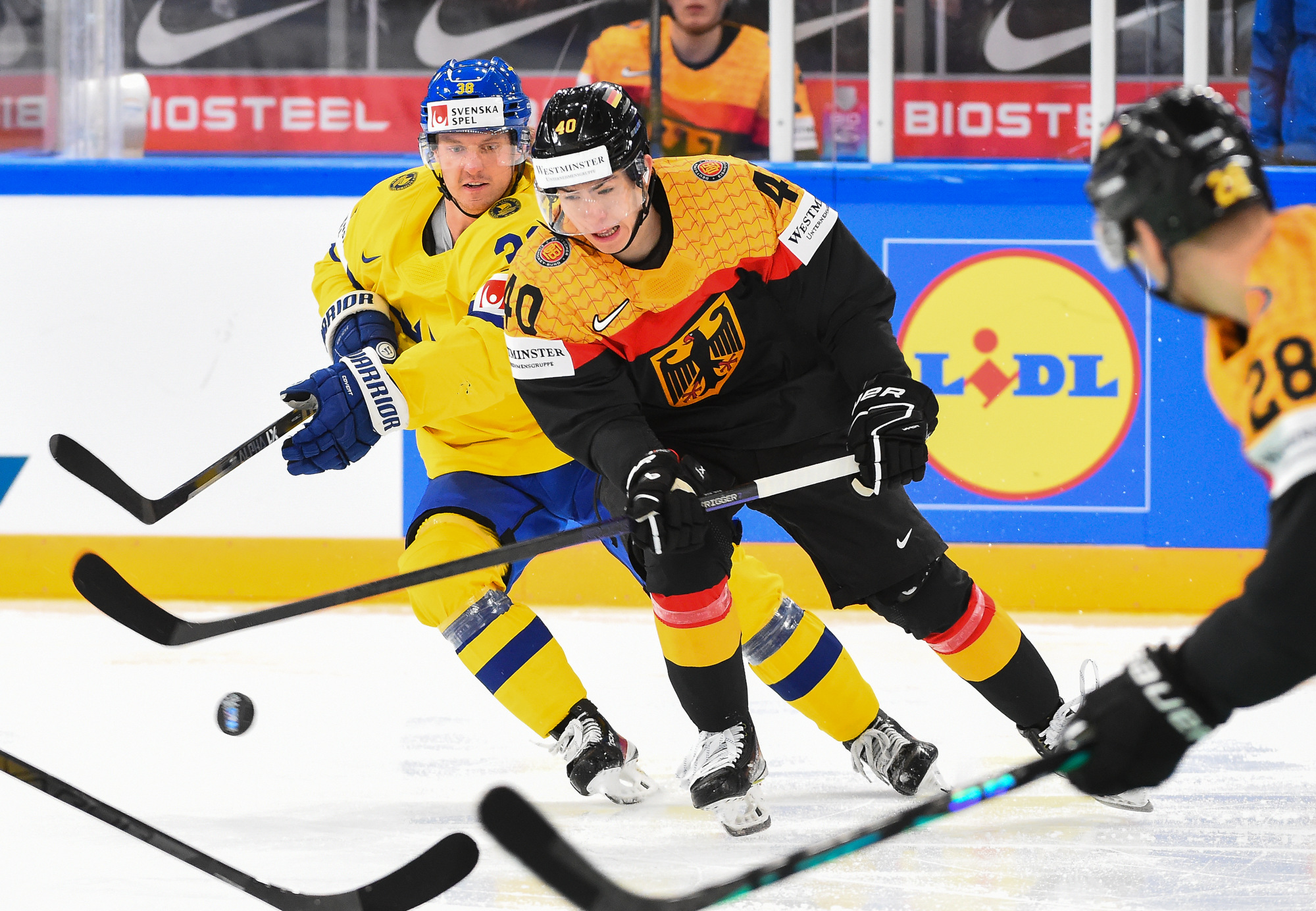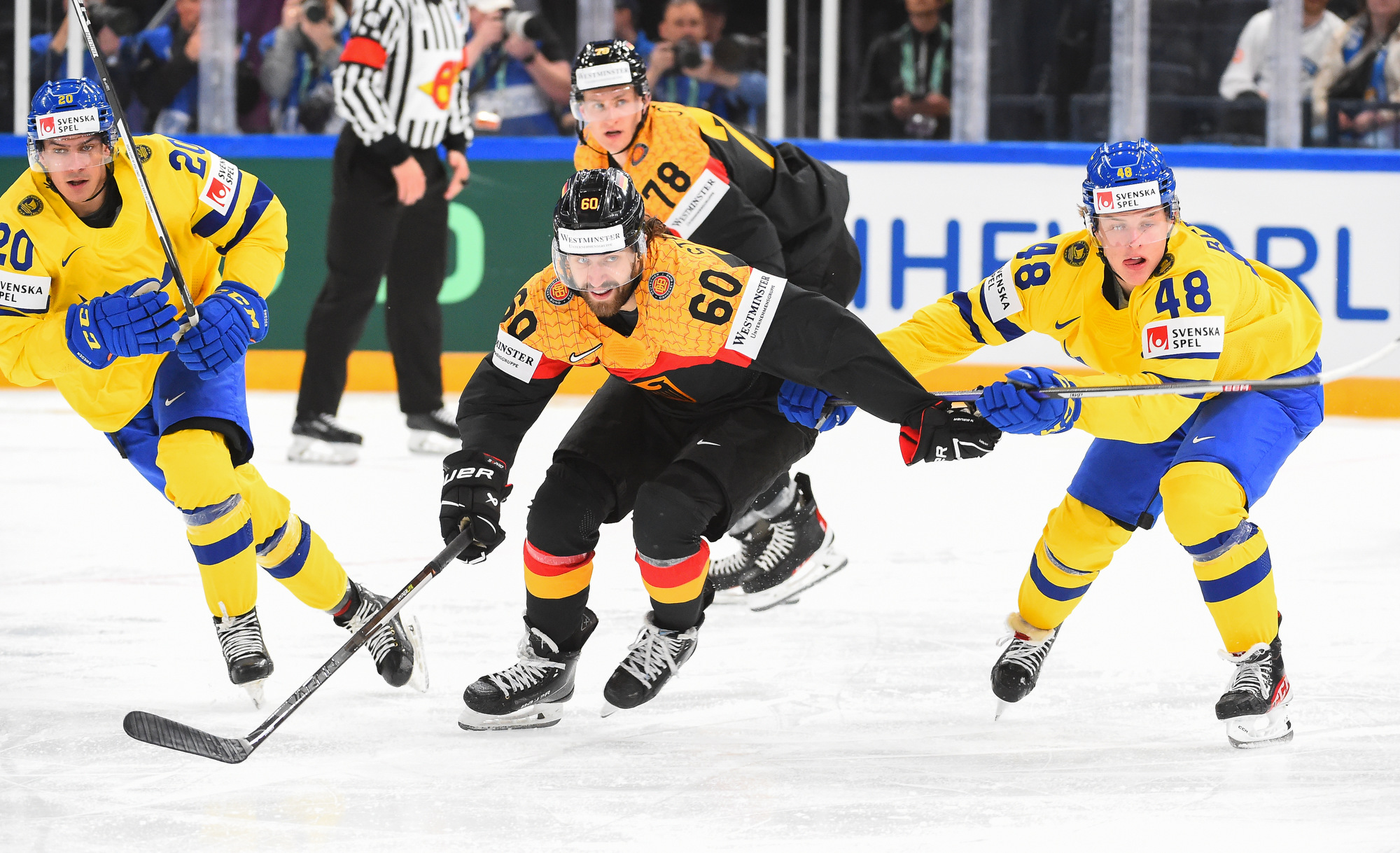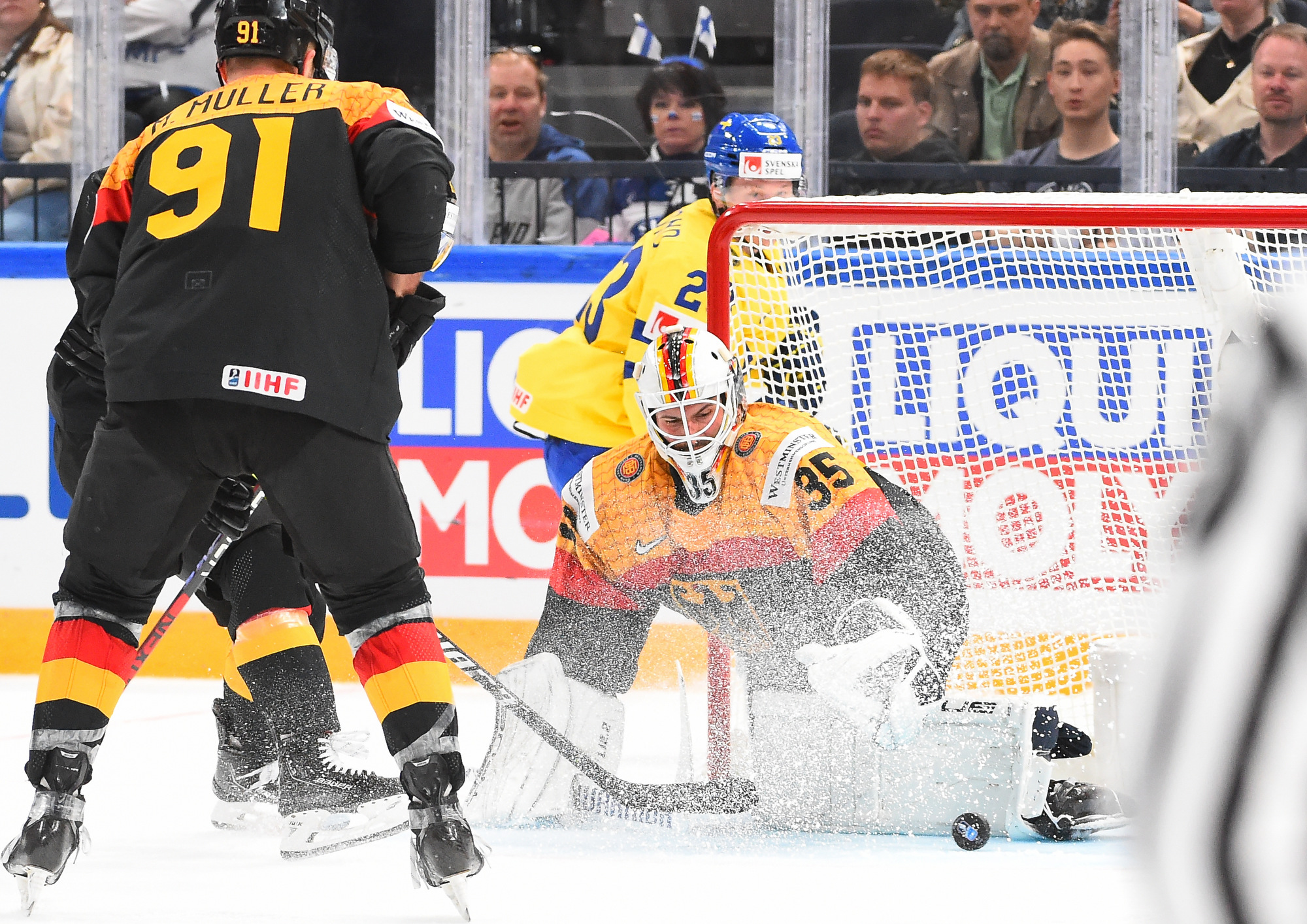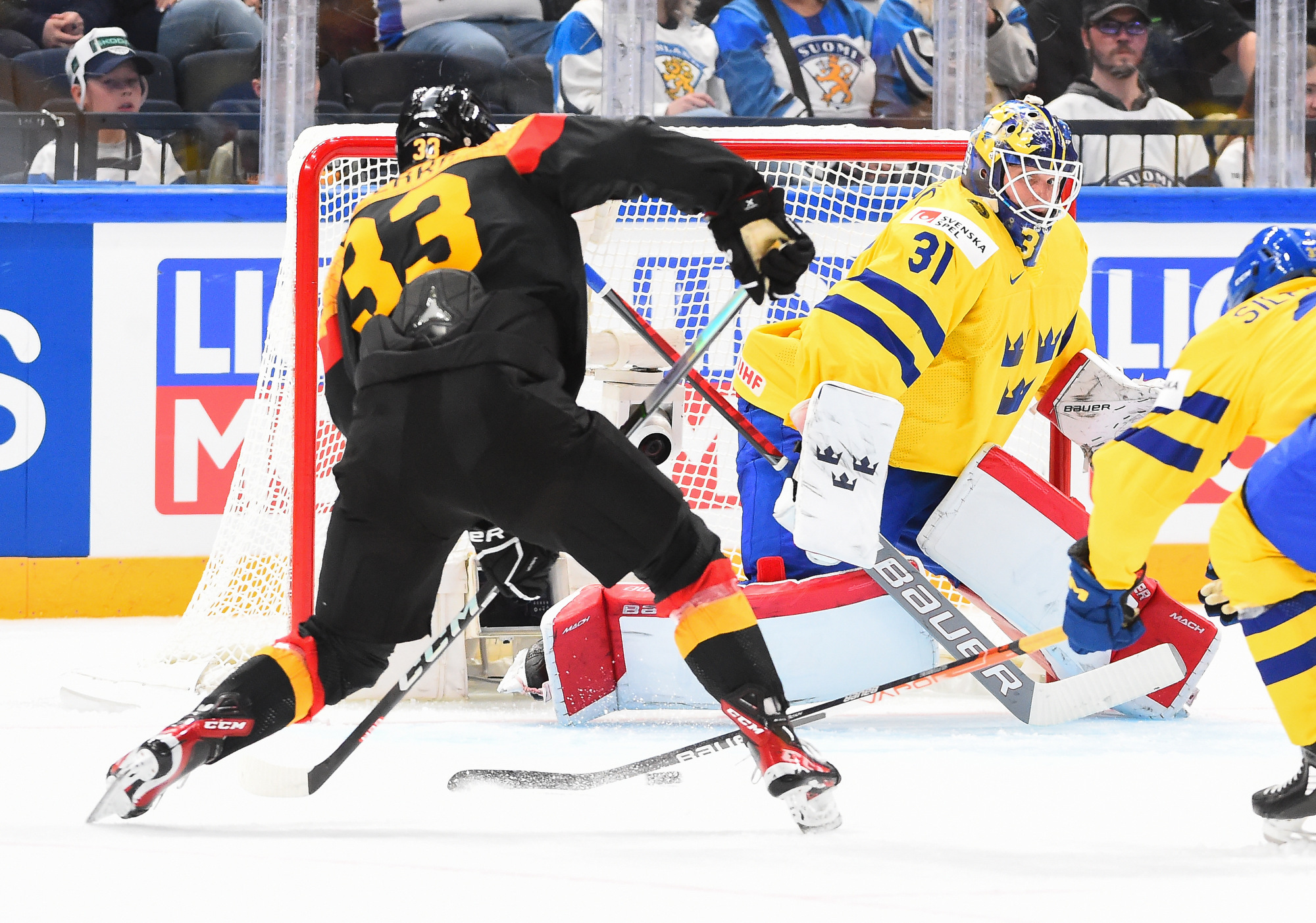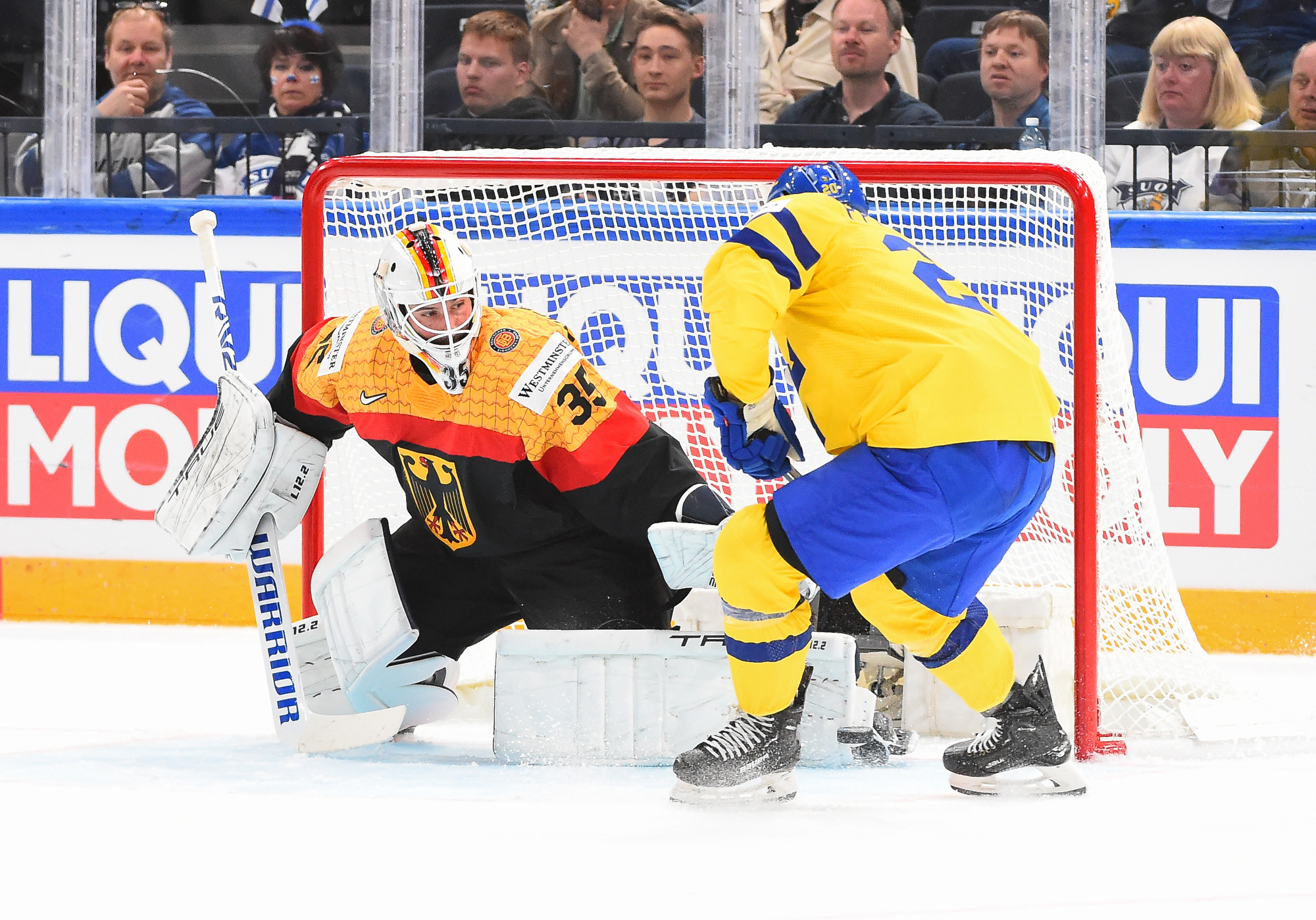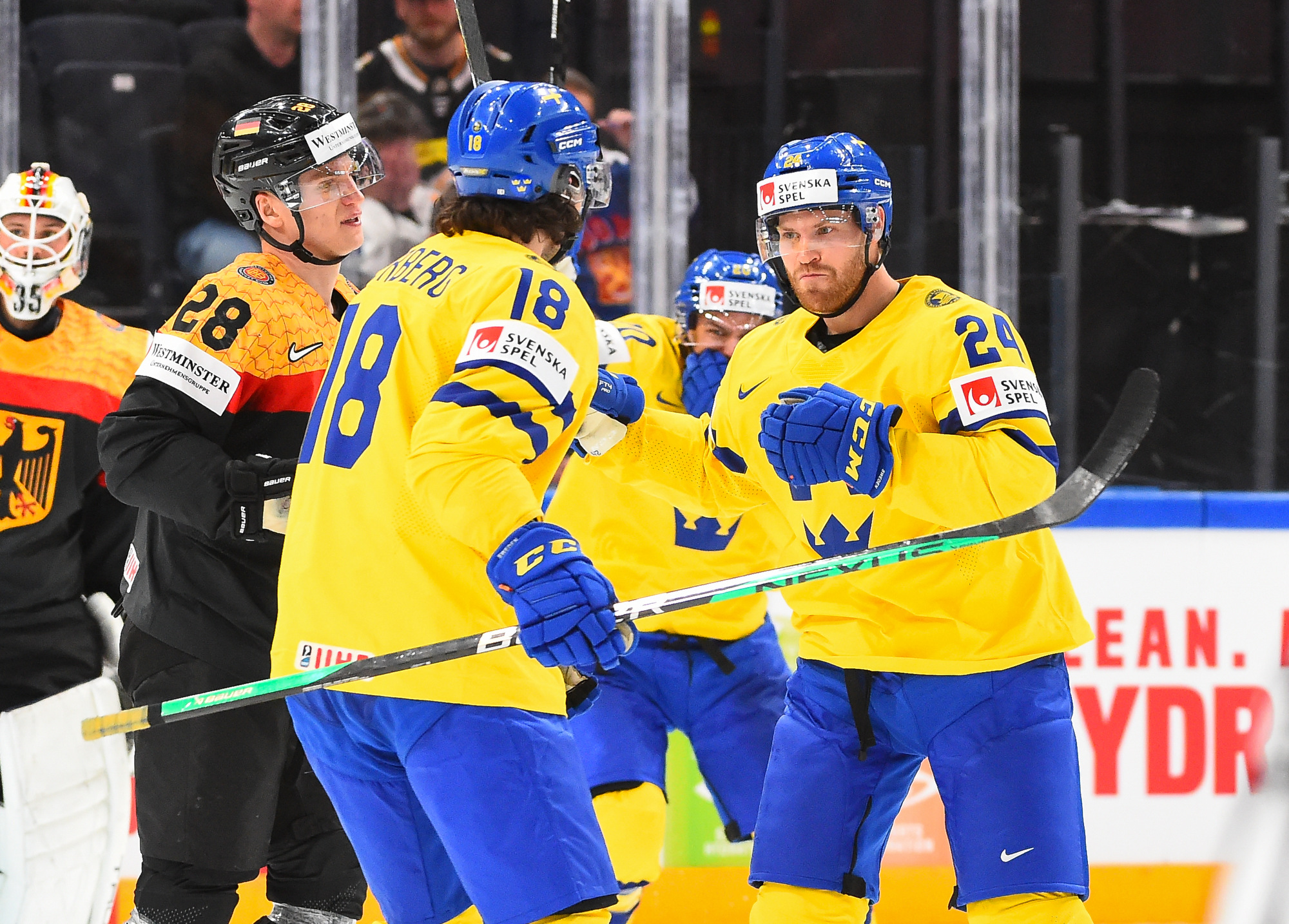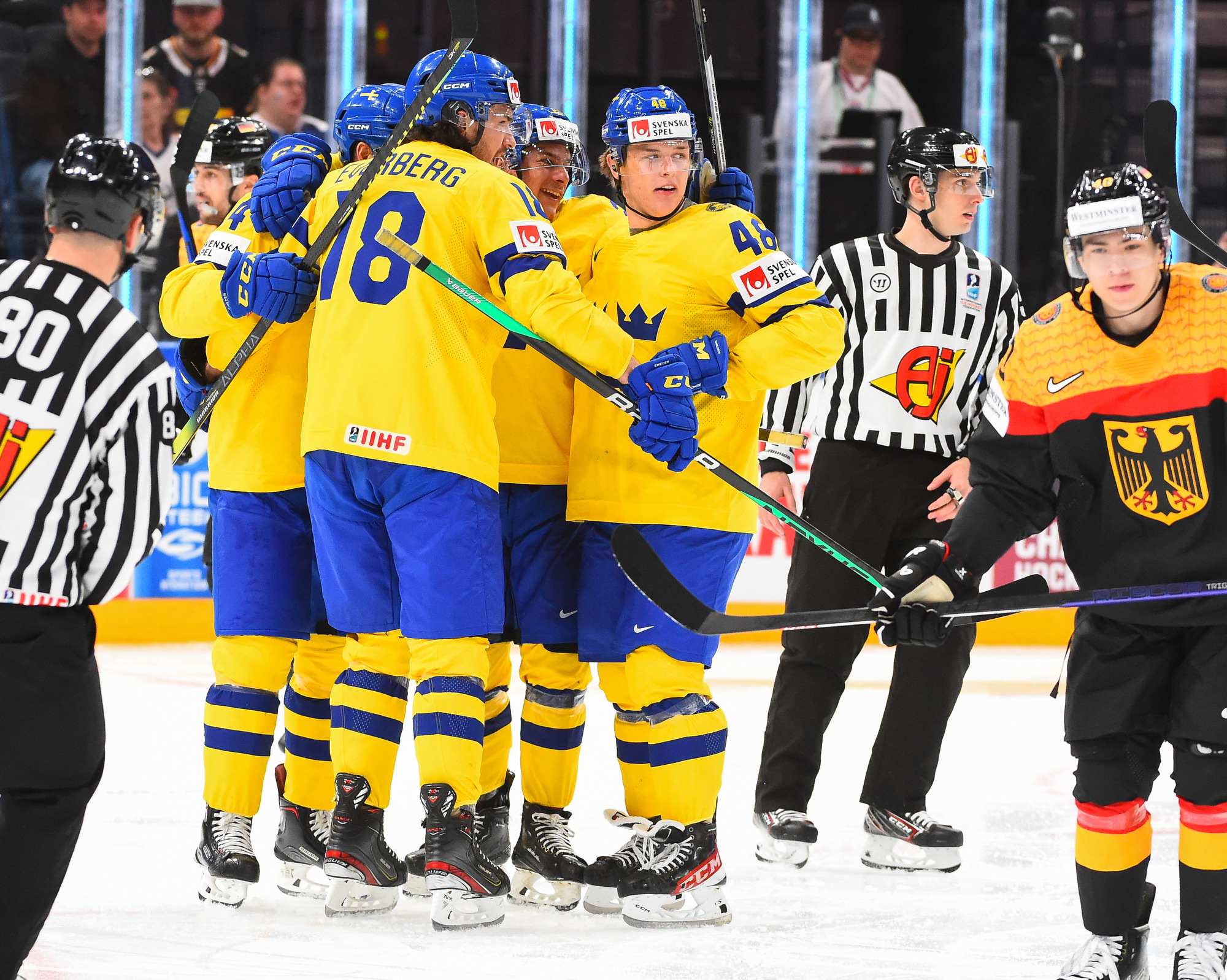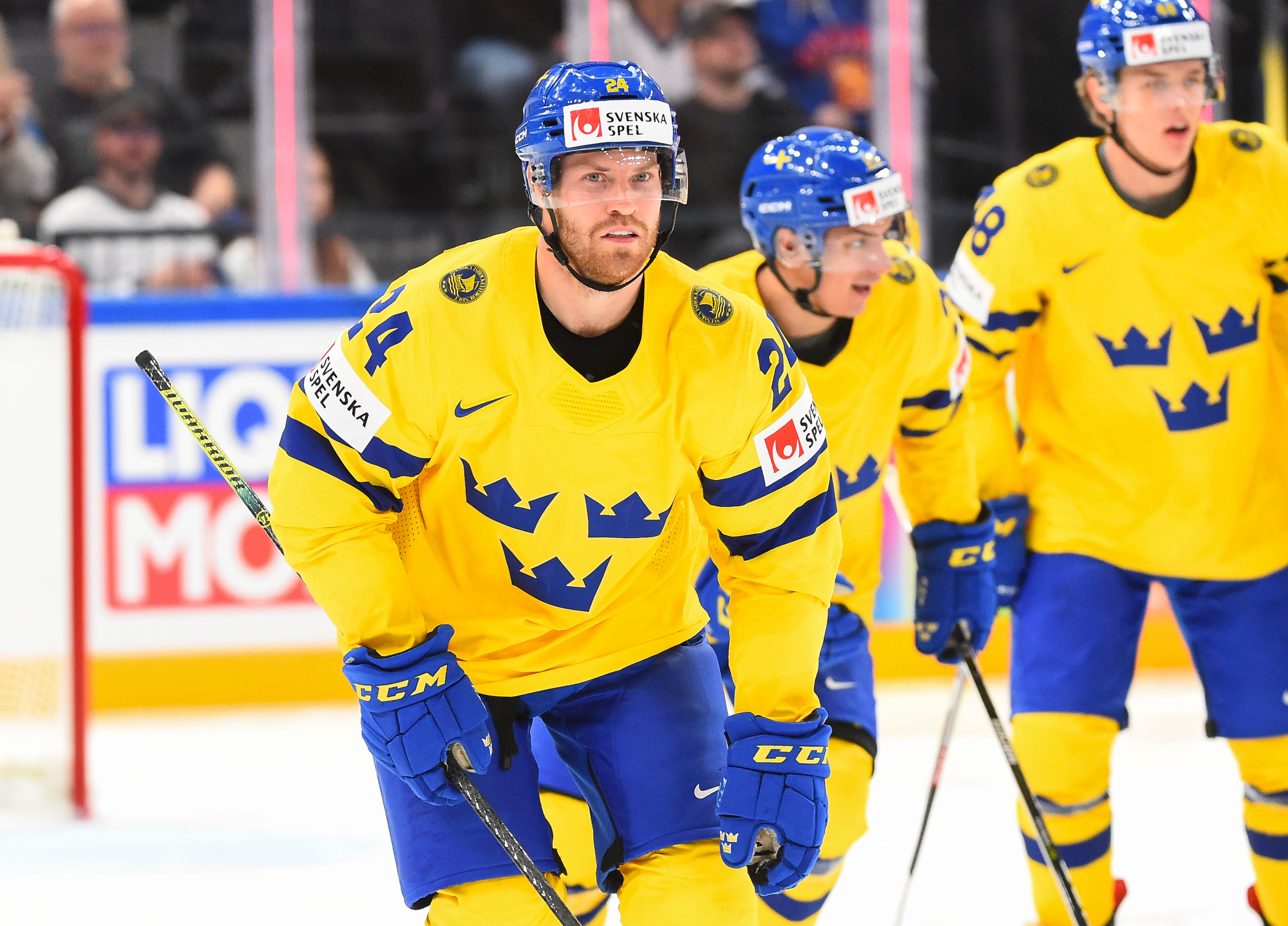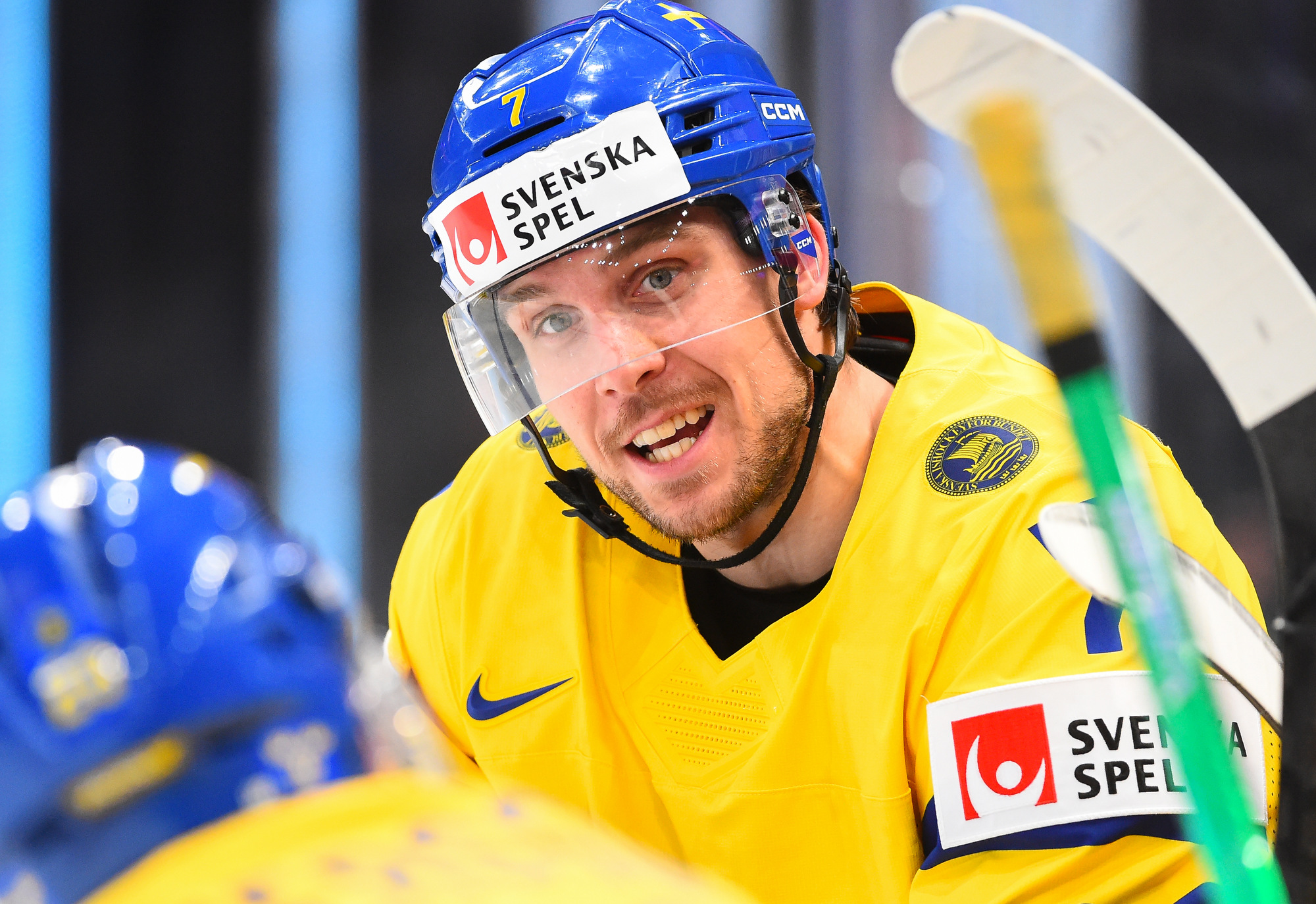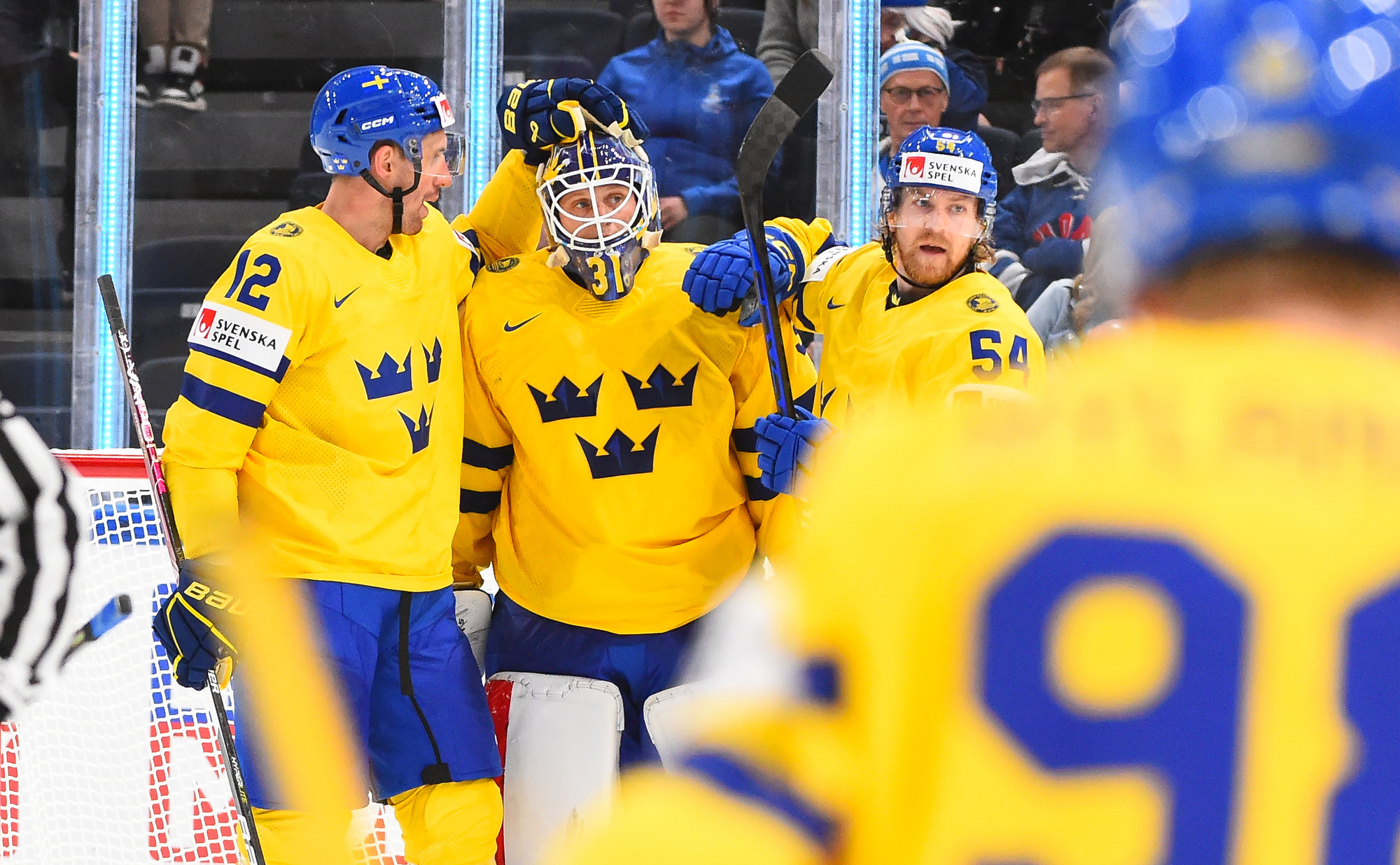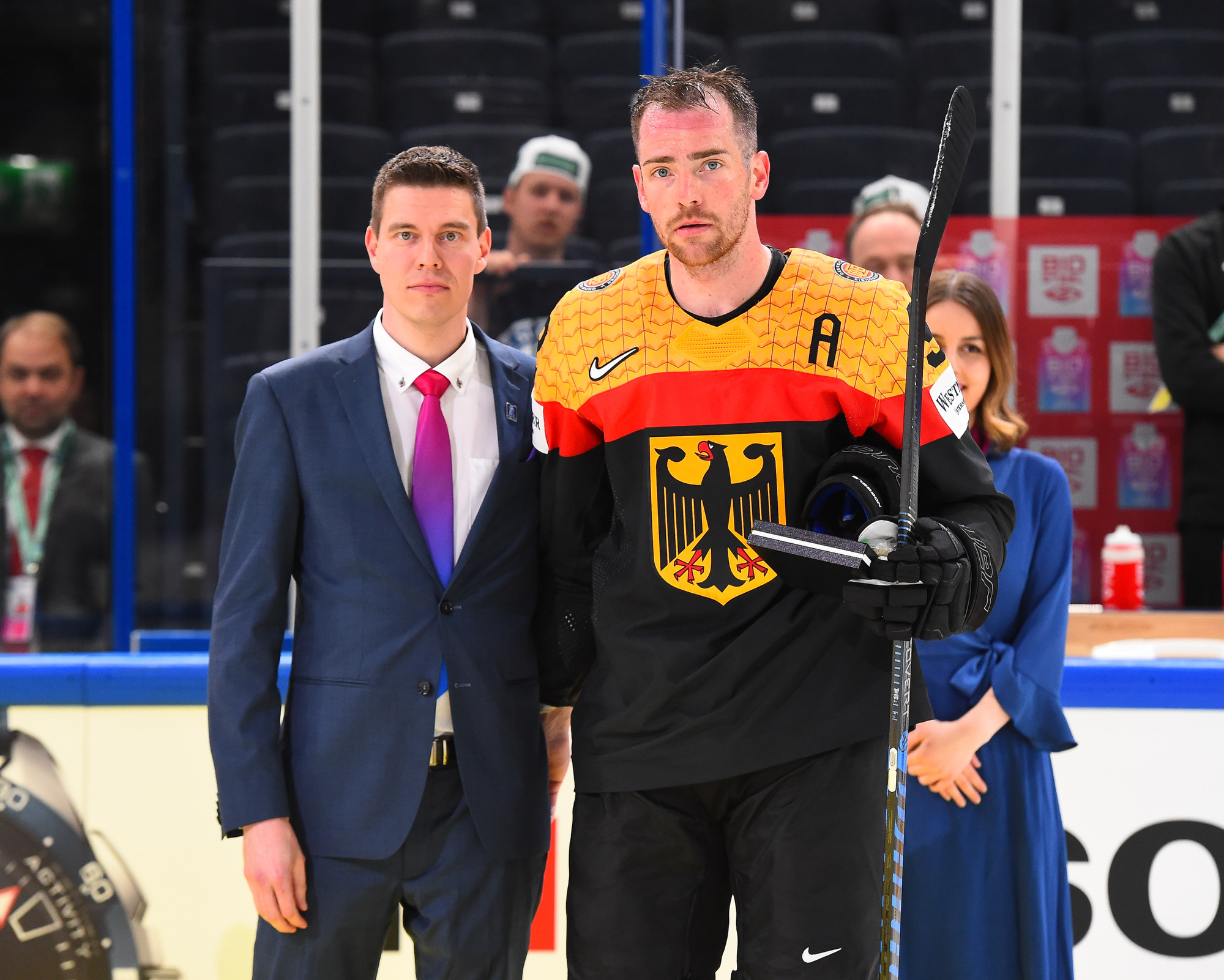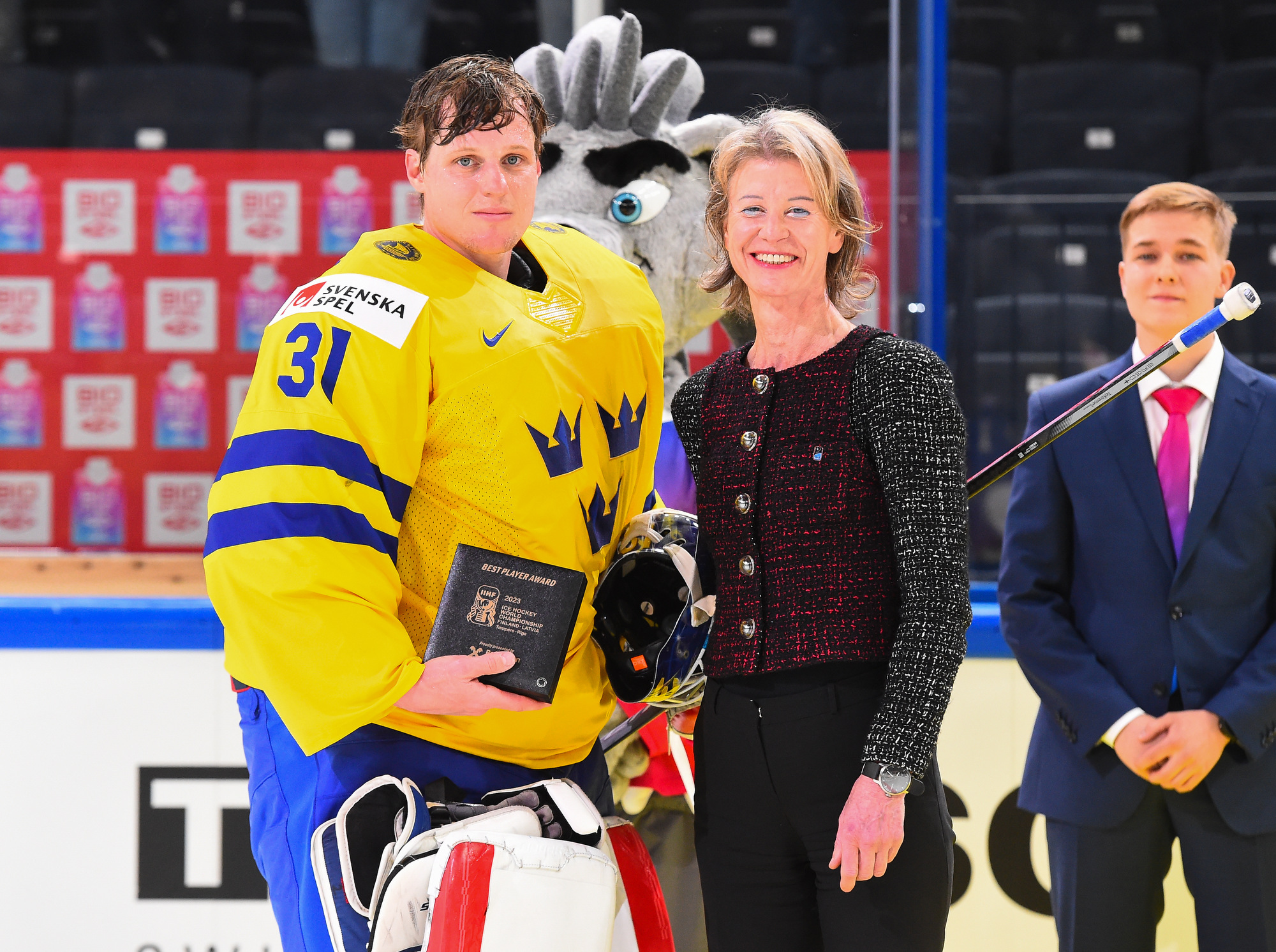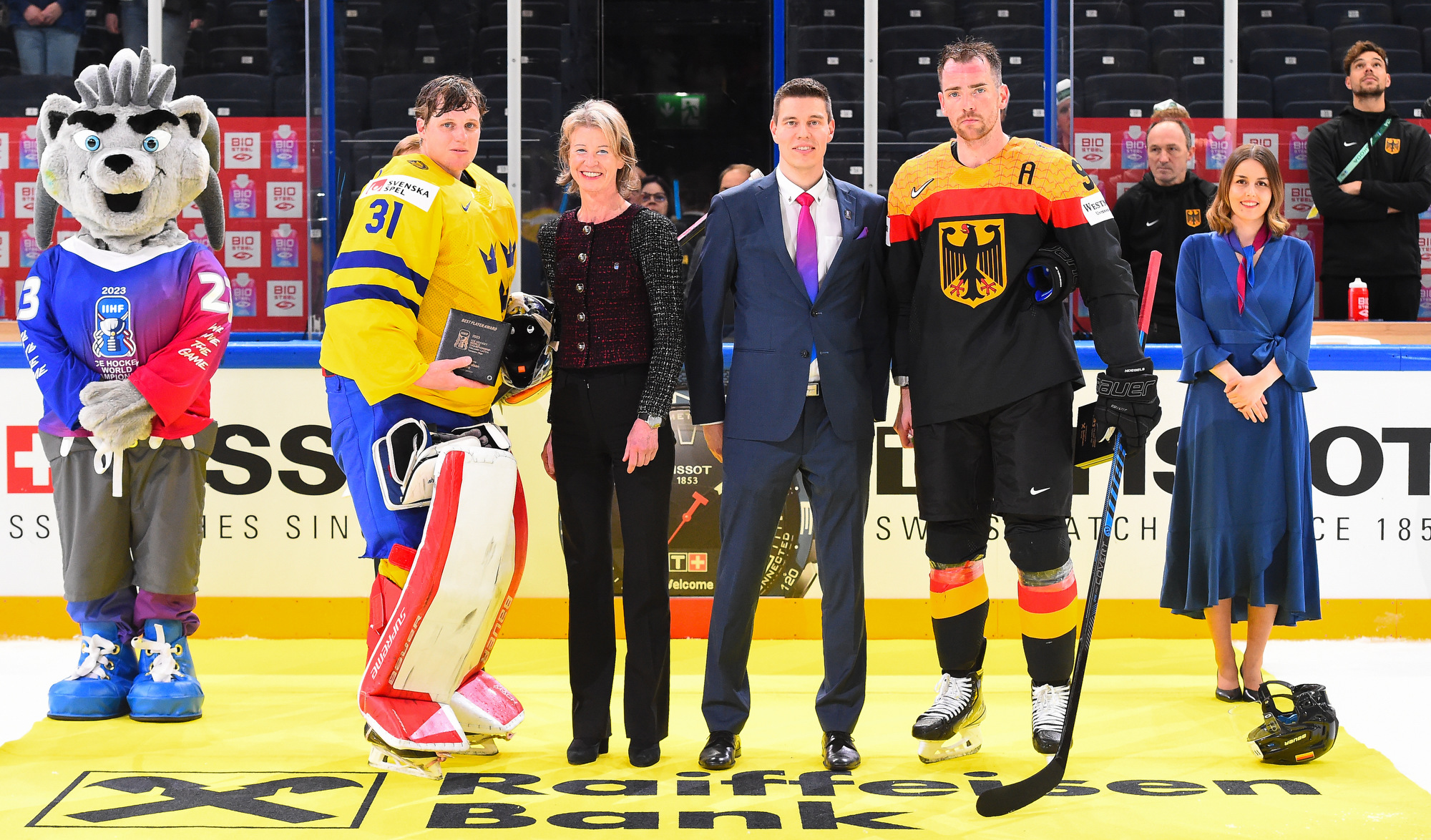Sweden's defence battles to protect its net during a shut-out victory over Germany at the 2023 IIHF World Championship in Tampere, Finland.
photo: © INTERNATIONAL ICE HOCKEY FEDERATION / ANDREA CARDIN
Sweden kicked off its World Championship with a gritty victory over Germany. Oscar Lindberg's power play goal early in the third period separated the two teams, with Lars Johansson marking his World Championship debut with a shut-out to backstop the win.
It was a big night for two Swedish players. Forward Leo Carlsson, aged 18 years, 136 days, became the Tre Kronor’s youngest ever World Championship player. At the other end, Johansson was the oldest goalie to make his World Championship debut for the Swedes at the age of 35 years, 305 days. The veteran did it in style, stopping 19 shots to give his team the verdict.
"He was great," said goalscorer Lindberg. "He's been great the whole season for us. He's very calm back there and talks a lot to us and helps us out. So it's huge to have a good goalie back there."
It was a big night for two Swedish players. Forward Leo Carlsson, aged 18 years, 136 days, became the Tre Kronor’s youngest ever World Championship player. At the other end, Johansson was the oldest goalie to make his World Championship debut for the Swedes at the age of 35 years, 305 days. The veteran did it in style, stopping 19 shots to give his team the verdict.
"He was great," said goalscorer Lindberg. "He's been great the whole season for us. He's very calm back there and talks a lot to us and helps us out. So it's huge to have a good goalie back there."
Johansson by no means unfamiliar with international play: he was on the Swedish team at last year's Beijing Olympics. Thus, he was unlikely to be fazed by an early German chance when a turnaround obliged Jacob de la Rose to poke check the puck off Maximillian Kastner’s stick before Daniel Fischbuch was forced off the puck in front of the net and Fabio Wagner’s eventual shot was comfortable for the goalie to gather.
That set the tone for the first period. Germany had slightly the better of the play, without ever finding the clear-cut opportunity to test the oldest ‘rookie’ in Tampere.
That failure to force the breakthrough left Dominik Kahun frustrated. “Especially in first period I thought we had enough chances to get the lead,” he said. “Our goalie played unbelievable today, he got us the chance to win the game and unfortunately we didn’t use it.
“We had some power plays as well, but we didn’t score the goals and that was the difference.”
Sweden's Alexander Nylander had some sympathy with Germany's disappointment. "They started off good," he admitted. "They were better than us in the first period. They came out harder, they're a good team."
German goalie Mathias Niederberger was first called into significant action midway through the opening session, getting behind a de la Rose effort.
The middle frame began in similar vein. Gradually, though, Sweden began to gain momentum. Andre Petersson, another making his World Championship debut for Sam Hallam’s team, finally found a shot with some venom to it, then Par Lindholm produced another fizzer, forcing Niederberger to greater efforts.
"But we started playing better at the end of each period," Nylander added. "We had a really good 10 minutes to end the second, and we just played a tight game there in the third."
A power play for Germany almost saw John Peterka break the deadlock midway through the session, but Jakob Silfverberg got back and slammed his stick down to cut out a dangerous feed to the back door.
Back at full strength, the Swedish offence continued to make menacing rumbles towards the German net. A couple of close range looks saw Petersson and Lucas Raymond go close, but the game remained goalless through 40 minutes.
Petersson, increasingly influential as the game went on, played a big part in engineering Sweden’s long-awaited breakthrough. The Tre Kronor began the final stanza on the power play and the HV71 forward discomforted the German defence with his persistent buzzing around the zone. Emerging from behind the net, he set up Jonatan Berggrun in the right-hand circle and the forward’s shot was expertly steered inside Niederberger’s near post by Oscar Lindberg.
"It was a power play and we stayed out there for a little bit," said Lindberg of his game-winner. "We got a shot, and I was just trying to get a screen. It hit my stick and went into the net. So it's a good feeling."
Sweden looked to be closing out the win with relatively little drama until Alexander Nylander’s needless o-zone high sticking penalty offered Germany a way back. The power play saw Dominik Kahun force Johansson into a smart pad save. However, Kai Wissmann took a tripping call – much to the disapproval of a largely pro-German crowd – the opportunity was cut short.
Johansson had one more important stop to make, getting behind a Moritz Seider blast in the 59th minute before the Germans pulled Niederberger in search of a last-minute equalizer. With the extra skater, Germany moved the puck around neatly but found it tough to pick a path through a well set Swedish defence.
With victory secured, Nylander was aware of what needs to improve as Sweden's tournament progresses. "We just gotta be ready for teams like this," he said. "We've got to play simple and fast hockey here. When it goes a little slower, that's when we get caught."
That set the tone for the first period. Germany had slightly the better of the play, without ever finding the clear-cut opportunity to test the oldest ‘rookie’ in Tampere.
That failure to force the breakthrough left Dominik Kahun frustrated. “Especially in first period I thought we had enough chances to get the lead,” he said. “Our goalie played unbelievable today, he got us the chance to win the game and unfortunately we didn’t use it.
“We had some power plays as well, but we didn’t score the goals and that was the difference.”
Sweden's Alexander Nylander had some sympathy with Germany's disappointment. "They started off good," he admitted. "They were better than us in the first period. They came out harder, they're a good team."
German goalie Mathias Niederberger was first called into significant action midway through the opening session, getting behind a de la Rose effort.
The middle frame began in similar vein. Gradually, though, Sweden began to gain momentum. Andre Petersson, another making his World Championship debut for Sam Hallam’s team, finally found a shot with some venom to it, then Par Lindholm produced another fizzer, forcing Niederberger to greater efforts.
"But we started playing better at the end of each period," Nylander added. "We had a really good 10 minutes to end the second, and we just played a tight game there in the third."
A power play for Germany almost saw John Peterka break the deadlock midway through the session, but Jakob Silfverberg got back and slammed his stick down to cut out a dangerous feed to the back door.
Back at full strength, the Swedish offence continued to make menacing rumbles towards the German net. A couple of close range looks saw Petersson and Lucas Raymond go close, but the game remained goalless through 40 minutes.
Petersson, increasingly influential as the game went on, played a big part in engineering Sweden’s long-awaited breakthrough. The Tre Kronor began the final stanza on the power play and the HV71 forward discomforted the German defence with his persistent buzzing around the zone. Emerging from behind the net, he set up Jonatan Berggrun in the right-hand circle and the forward’s shot was expertly steered inside Niederberger’s near post by Oscar Lindberg.
"It was a power play and we stayed out there for a little bit," said Lindberg of his game-winner. "We got a shot, and I was just trying to get a screen. It hit my stick and went into the net. So it's a good feeling."
Sweden looked to be closing out the win with relatively little drama until Alexander Nylander’s needless o-zone high sticking penalty offered Germany a way back. The power play saw Dominik Kahun force Johansson into a smart pad save. However, Kai Wissmann took a tripping call – much to the disapproval of a largely pro-German crowd – the opportunity was cut short.
Johansson had one more important stop to make, getting behind a Moritz Seider blast in the 59th minute before the Germans pulled Niederberger in search of a last-minute equalizer. With the extra skater, Germany moved the puck around neatly but found it tough to pick a path through a well set Swedish defence.
With victory secured, Nylander was aware of what needs to improve as Sweden's tournament progresses. "We just gotta be ready for teams like this," he said. "We've got to play simple and fast hockey here. When it goes a little slower, that's when we get caught."
Sweden vs Germany - 2023 IIHF WM
OF

